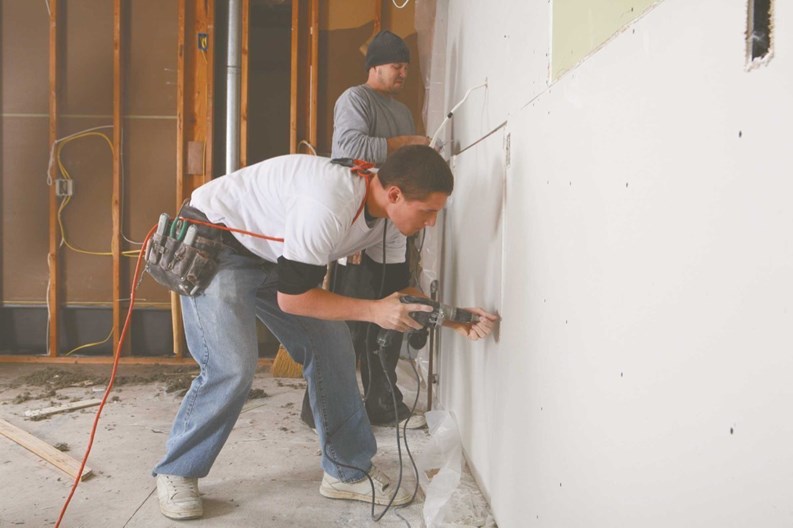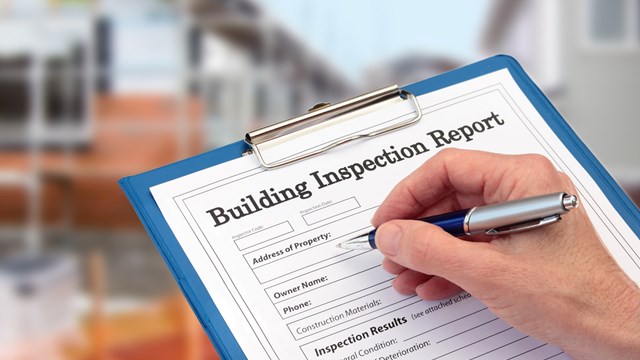Eventually, most co-op owners will get bored with their surroundings and want to spruce up their apartment. Sometimes this will involve a full remodeling or redesign of the unit, while other times it simply means adding a new coat of paint or some new cabinetry.
Or perhaps a new owner will want to do something to make an apartment more their own once they move in, rearranging the rooms or making the bathroom a little bigger.
Whatever alterations are planned, it’s important to abide by a building’s governing documents on how they should be scheduled and structured, how they impact other residents, and what kinds of insurance risks such projects pose.
Know the Rules
“A co-op board has many responsibilities and among them is undoubtedly to protect the corporation’s property and the peace and quiet the other shareholders enjoy,” says Andrew P. Brucker, a partner with the Manhattan-based law firm of Schechter & Brucker, P.C. “Therefore, the board should require that all alterations be reviewed by an engineer to protect building-wide systems from being compromised, that the contractor has insurance and that the work be undertaken in a manner to minimize interference with the lives of the other tenants in the building.”
Almost all remodeling and renovation work will be governed in the proprietary lease, bylaws and building rules, which should make clear the responsibility to submit an alteration agreement prior to the commencement of any work within their apartment or unit.
“A well-run building will have a complete policy with everything in writing about what they need to know and when they need to know it,” says attorney Douglas P. Heller, a partner with Manhattan's Herrick, Feinstein LLP, specializing in representing co-ops and condos. “They key is in the communication.”
Any type of apartment renovation or alteration must address concerns with respect to the management company who manages the property or the board itself.
“A board needs to control the entire process to make sure the work being done is accessible and also to know when it’s going to be done,” Heller says. “A board has to be really vigilant and really stay on top of things. There must be a written alteration agreement submitted to management prior to any type of remodeling or renovation work to be completed by any outside contractors in any of the units in the building.”
Big vs. Small
Generally, there alterations are split up into two groups. Those that include some type of structural work or work that would affect the HVAC, plumbing, electrical, or any other building system in any given building, and others that are simply cosmetic in nature, such as painting, wallpapering, replacing carpets or refinishing wood floors.
Manhattan-based architect Edward Rory McGinnis says that typically, a co-op resident can paint and hang photos and other wall decorations, but any other work they want done usually requires approval of the board.
“Everything has to be approved by the management or board, even if it’s something small like changing cabinets or tiles in the bathroom,” McGinnis says. “Permission is essential, or there could be some problems down the line.”
In short, the board has a legitimate concern over every type of work that takes place in the building, because if problems arise, they can be deemed legally responsible.
“For example, even a simple paint job is the concern of the board, as it is essential that the painter be licensed and has insurance,” Brucker says. “The insurance should name the co-op as an additional insured for additional protection. These types of simple jobs would not be considered alterations however, because they're decorative in nature. An alteration which would require a formal alteration agreement and all the protections available would be work which requires a building permit or which effects a building wide system.”
But since strangers are entering the building in many of the decorative cases, a board needs to be informed all the same. For smaller jobs, the co-op may only ask who the contractor is and get some preliminary details about the work that will be done.
“The board in some co-ops may have contractors they have experience with, so they know they can do the job, but they still need to see proof of license and insurance for anyone starting a job,” McGinnis says. “If you want to do plumbing work or cabinet work, sometimes all you need is a letter and a sketch to accompany your plan.”
Important To Know
If a building resident is planning on making an alteration, they should make sure that they give a board plenty of notice so that everything can be done in time for the work to begin.
“The board considering an alteration should have an engineer to review the requested alteration. Besides his/her concerns, the board should also consider the amount of time the alteration will require,” Brucker says. “No one likes to live near an alteration that continues for six months or longer.”
Brucker, who is also chair of the New York City Bar Association’s Cooperative and Condominium Law Committee, says an alteration agreement should be signed by the shareholder. The new model alteration agreement can be found on the New York City’s Bar Association website at http://www.abcny .org/RealEstate/Forms.htm.
“This should clearly lay out all of the responsibilities of the shareholder,” he says. “Obviously, the alteration must be presented formally to the board. These plans must be reviewed by the board's engineer to assure the board that there will not be any illegal or questionable aspects to the alteration.”
The fact is, no alteration can begin until all requirements have been completed. This may take from weeks to months, depending on the size of the job.
“One of the provisions of an alteration agreement includes work hours,” Brucker says. “Typically the alteration agreement states that work hours are Monday through Friday only, and from 8 to 5 p.m. Also, the agreement might also prohibit the use of jack hammers or pneumatic devices.”
Heller says a standard form alteration agreement should be adopted to cover topics such as claims (personal injury or property damage), designation of architect or engineer, insurance, damage to the building, hold harmless by apartment owner to condominium or cooperative, hours of work, demolition and air borne contaminants, testing for environmental conditions, plumbing and electrical systems, general building systems, liability and indemnification, building and/or adjacent owners, security, relocation and an advance deposit for damages to the building.
There should also be a series of riders drafted to cover issues such as levels of lead based paint contamination, asbestos, plumbing/heating, HVAC, appliances, electrical systems and services, window and wall replacement, terrace construction and/or landscaping, removal and/or replacement of structural portions of the building and/or the interior of the apartment or unit.
On a side note: occasionally, a new or long-time owner may purchase two neighboring units with the intent of knocking down walls and turning them into one large apartment. While this certainly counts as an “alteration,” it's a much more complicated procedure, and as such falls outside the scope of this particular article.
“Combining apartments certainly is a major project, due to the provision of New York City Law,” Brucker says. “This sort of alteration requires an amendment to the Certificate of Occupancy, but it is a much easier process now that an engineer can self-certify that the provisions of the law have been followed.”
Permission Granted
Each proprietary lease has an alteration section and before any project starts, careful reference should be made to that section. But even following the rules doesn’t guarantee that one may do a project.
“Some leases state that consent to an alteration is totally in the discretion of the board,” Brucker says. “But some leases state that the alteration is subject to consent of the board, but that consent cannot be unreasonably withheld. In that case, the board must have a good reason for a denial or conditions it might set.”
McGinnis offers that when you buy into a co-op housing corporation, you agree to abide by the lease, the bylaws, and the house rules. Sometimes, majority rules, and you may not like or agree with what the shareholders or the board does, but that's the price you pay when you buy into a co-op.
“The board can do whatever they want. It’s amazing the amount of control they have,” he says. “But that’s what happens when you move into a co-op. You sometimes lose control. You may not be able to make the changes you want.”
Heller states that it’s not about risk, since if the board has done is job properly, they would have the proper insurance for any work being done, but sometimes a decision is based on the aggravation that work can entail.
The biggest reason for denying work, Heller says, is due to “no wet over dry,” rules, where a building will prohibit people from moving their bathrooms around, relocating them over a living room or bedroom, where it might cause future water problems.
“It’s easy for a board to say no,” Heller says. “Why say yes and have loud construction or increasing the chance that a mistake is made and something goes wrong? All they need is to deny it.”
However, a shareholder/owner who follows all the rules and plans their alterations with the involvement of their board will likely find smooth sailing--at least from an administrative perspective. Whether they can get their contractor on the phone to discus the new glass tiles...well, that may be another story.
Keith Loria is a freelance writer, sports reporter and a frequent contributor to The Cooperator.







Leave a Comment